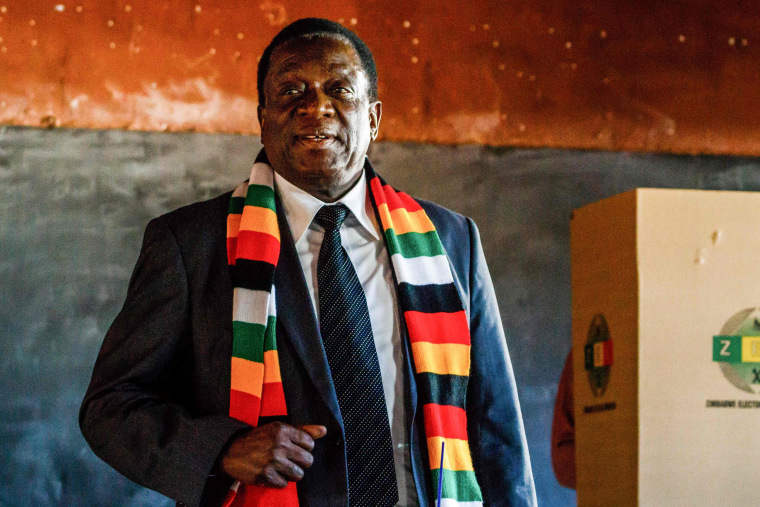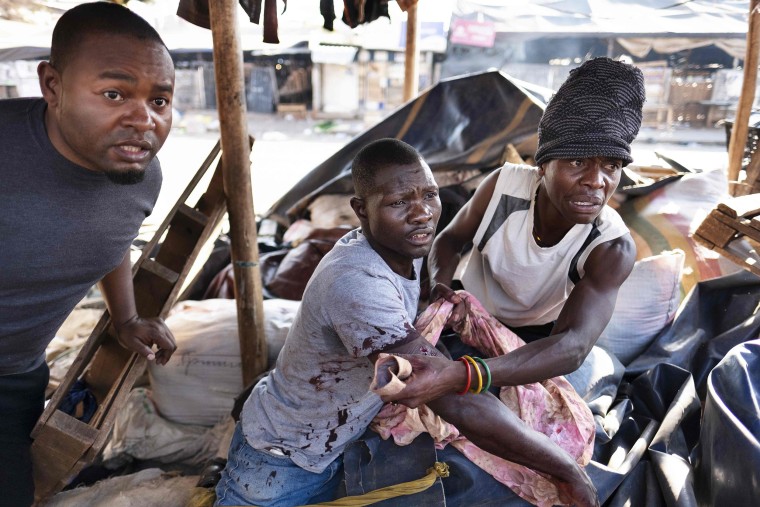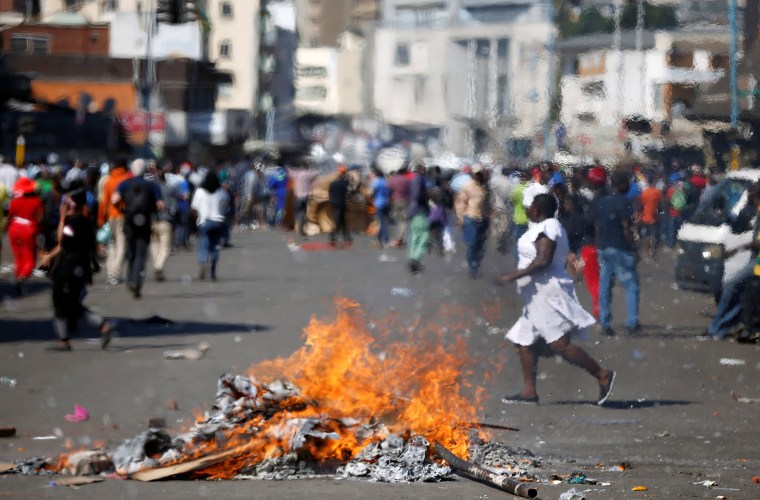HARARE, Zimbabwe — Zimbabwe's capital Harare saw post-election violence Wednesday after the country's electoral commission announced the ruling party won a majority of seats in Parliament, prompting opposition protests.
The commission said the ruling ZANU-PF won 109 seats while the main opposition Movement for Democratic Change party had 41 in the country's 210-seat House of Assembly. It added that two seats were won by smaller parties and 58 seats had yet to be declared.
Gunfire crackled through Harare's streets later, as soldiers stepped in to disperse protesters who had clashed with police after the main opposition leader accused the ZANU-PF of trying to rig the results.
Women were heard shrieking as they were approached by Zimbabwean troops, who tried to strike them as security forces cleared the street.

Riot police were seen streaming down one street as armored vehicles sped by and a military helicopter circled overhead.
The Associated Press saw at least one body in the street.
The opposition alleges the elections have irregularities, saying voting results were not posted outside one-fifth of polling stations as required by law.
The commission said it would announce the results of Zimbabwe's presidential race, pitting President Emmerson Mnangagwa against opposition leader Nelson Chamisa, only after all the votes have come in from across the country.
Mnangagwa's government, meanwhile, accused Chamisa and his supporters of inciting "violence" by already declaring he had won the election, the first after former leader Robert Mugabe stepped down in November.
"Let me also warn such individuals and groups that no one is above the law," Home Affairs Minister Obert Mpofu said, adding that fecurity forces "will remain on high alert and continue to monitor the security situation in the country."
Mnangagwa himself took to Twitter, calling for calm and urging patience before the results were announced.
The scenes Wednesday are an unnerving reminder of the tensions that pervade this southern African nation, debilitated by Mugabe's long rule. The 94-year-old former leader had been in power since independence from white minority rule in 1980 until he was forced to resign after the military and ruling ZANU-PF party turned on him.
Mnangagwa, a former deputy president who fell out with Mugabe and then took over from him, has said his showing in the presidential polls was "extremely positive" while urging people to wait for official results.

Chamisa, a lawyer and pastor who leads the opposition MDC party, has gone further, saying his own count shows that he won the election and that he's ready to form the next government.
"We won the popular vote & will defend it!" Chamisa tweeted Wednesday morning.
Zimbabweans desperately hoped the vote, which took place Monday, would lift them out of economic and political stagnation after decades of Mugabe's rule, but the country is haunted by a history of electoral violence and manipulation that means trust is scarce.
While the electoral commission has five days from the end of voting to release the final tally, the national mood is growing anxious partly because unofficial results are already swirling on social media.
European Union observers also questioned the conduct of the presidential and parliamentary polls, and expressed concern about delays in releasing the results of the presidential contest.
The E.U.'s chief observer, Elmar Brok, criticized the electoral commission for being at times "one-sided."
He added: "The longer ... the results of the presidential election is not known, the more lack of credibility it provides."

